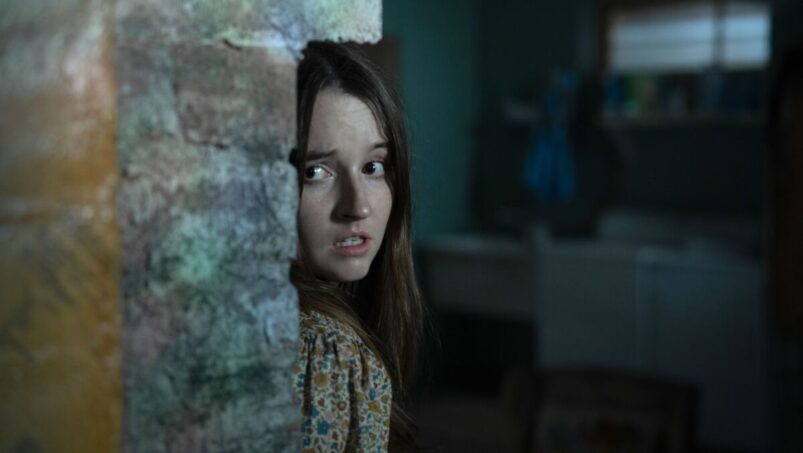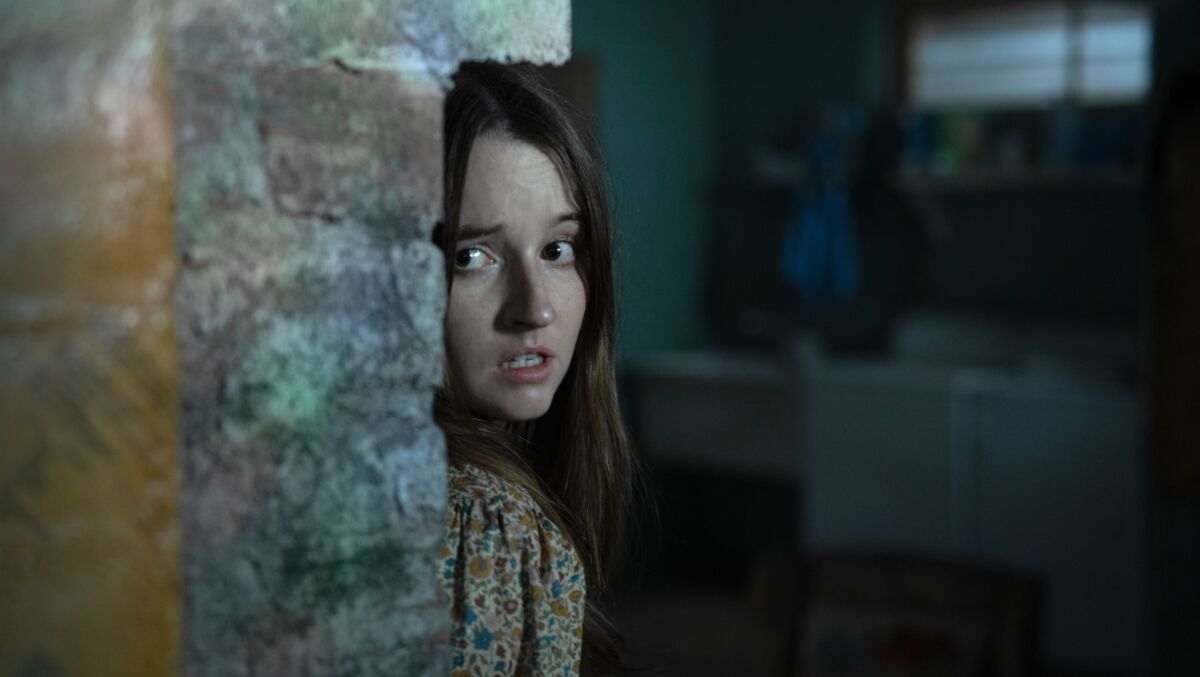Director-writer Brian Duffield may be more familiar to you than you know. He’s been the screenwriter on films like The Babysitter, Underwater and Love and Monsters. His directorial debut Spontaneous was fantastic, and made my 2020 list of underrated films. Considering what a knock out of the park Spontaneous was, I had high hopes for No One Will Save You. The premise sounded like a mix of A Quiet Place, Signs and Hush. While there is much to enjoy, the film is let down by its inability to sustain its visual storytelling, which makes it feel fairly repetitive about two-thirds in.
Brynn (Kaitlyn Dever) lives alone, but her home offers her a sense of solace, since that’s where she has memories with her mother. She’s alienated by the community she lives in, where even the neighbour she waves at refuses to return the gesture. What has she done that’s caused such an exclusion? After her dinner, she writes a letter addressed to her friend Maude, and mentions seeing Maude’s parents in town, relating her desire for forgiveness in said letter. What did she do to Maude? And why would she hide herself away upon seeing Maude’s parents?
As Brynn struggles with the ghosts of her past, she comes face to face with present day horror when an alien enters her home and attempts to kill her. This first 25 minutes of the film is masterful. There’s tension as the creature stalks her through the house, and with each encounter we get to see more and more of the alien. While the creature design is nothing to write home about – it’s the standard big, bulbous head and enlarged eyes version of alien – they can be quite scary, especially since they aren’t all built the same way.
There’s practically no dialogue throughout the film, so it relies heavily on Dever’s acting, the score and the visuals to carry the story. Dever is fantastic. She’s able to articulate so much of what Brynn is feeling, and this is no easy feat given that she was probably reacting to mere props since the aliens are created using special effects. Joseph Trapanese’s score is also solid, and does so much in contributing to the tense spaces of the film. The problem is that the visuals are only able to carry the film so far.
In A Quiet Place, there’s dialogue, characterisation, development of relationships, and the silence in the film is because of the aliens. In this film, it’s done more for stylistic reasons. For Brynn, we learn a little bit about her from the visual cues in the beginning, but there’s just not enough there for us to feel for her. If I am not given enough substance to care and root for a main character, then watching her deal with perilous situations don’t feel as tense as they could be. It also feels a tad unbelievable that she doesn’t feel compelled to say anything in the film’s runtime, besides the sounds of her breathing and slight screams when the aliens get the best of her.
Besides a brief venture into town after her home is invaded, the rest of the film is very much like the opening intruder sequence, with these extraterrestrials attacking Brynn, and she having to defend herself – rinse and repeat. The film needed an injection of something more at this point, especially when we consider how inapt these aliens have to be that a whole bunch of them are unable to capture this one human woman. We do get to eventually learn what happened between her and Maude, but then finding out only left me with more questions – not in a good way.
It’s a well-made film, and Duffield’s ability to stretch the film’s budget and make something this good looking is tremendous. The reception to the conclusion will be divisive, but I actually liked it. There’s an understanding here that living in loneliness and isolation is perhaps the most painful way to exist. Maybe relinquishing some autonomy might be worthwhile if it means access to a sense of belonging.
READ NEXT: Ranking the Alien Movies From Worst To Best
Some of the coverage you find on Cultured Vultures contains affiliate links, which provide us with small commissions based on purchases made from visiting our site. We cover gaming news, movie reviews, wrestling and much more.




